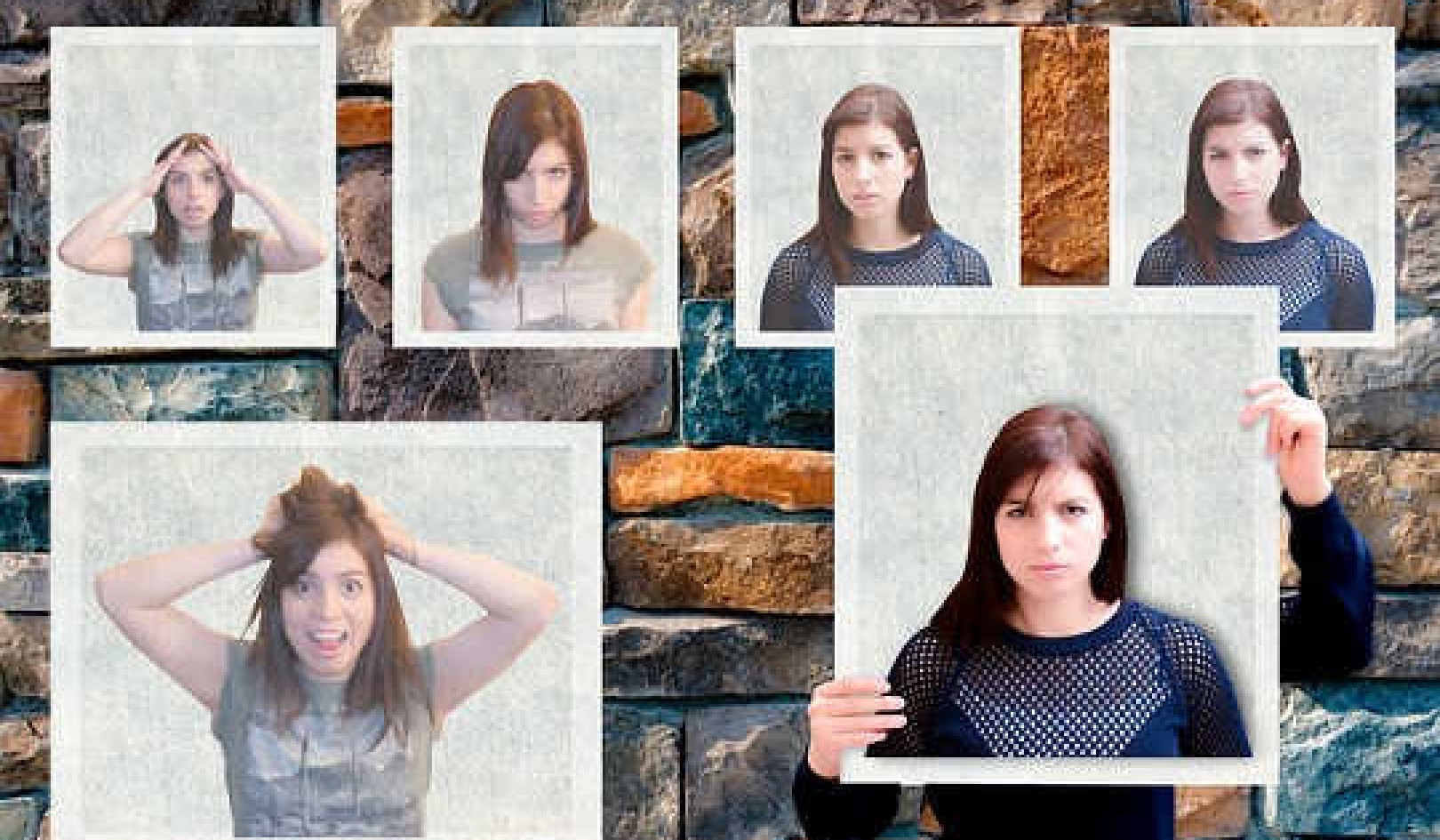
Image by ?? ?
The philosopher and religious writer Simone Weil astutely observed that for writers of her day "words which contain a reference to good and evil" had become "degraded, especially those which refer to the good." We see this increasingly in our own time, when words related to good -- not only courage but also effort, patience, love and hope -- are met with cynicism and indifference.
Ours is a social climate in which people are perhaps fearful of being judged by others and hesitate even to utter such words. Unless we boldly confront cynicism and indifference, we cannot make fundamental and effective responses.
This undercurrent of social and spiritual malaise has spread rapidly in recent years. The question, "Why is it wrong to kill people?" was asked on a popular Japanese television program. It then became the title of a feature series in a magazine and was later published as a book.
These phenomena give us an indication of where the problem lies: When even the time-honored tenets and virtues articulated in all the major world religions, such as prohibitions against the taking of human life, are called into question, one can easily imagine the prevailing attitude toward coercive and violent behavior such as bullying. I believe we must wake up to the fact that cynicism and indifference erode society at its roots and are potentially more dangerous than any individual act of evil.
The Dangers of Indifference and Cynicism
Two men with whom I copublished a series of dialogues, the renowned Russian children's author Albert A. Likhanov and Norman Cousins, known as the "conscience of America," both shared this view. They adamantly warned against the dangers of indifference and cynicism in the face of evil -- even more than evil itself -- because these attitudes reveal a decisive lack of passionate engagement with life, an isolation and withdrawal from reality.
Citing the paradoxical words of Bruno Jasienski, Likhanov warns of the profound harm apathy inflicts on a young person's soul:
Do not fear your enemies. The worst they can do is kill you. Do not fear friends. At worst, they may betray you. Fear those who do not care; they neither kill nor betray, but betrayal and murder exist because of their silent consent.
In other words, it is the act of averting our eyes from acts of murder or betrayal that allows such evil to proliferate without end. Similarly, Cousins makes reference to the following statement by Robert Louis Stevenson:
I hate cynicism a great deal more than I do the devil, unless perhaps the two are the same thing.
He voices his own deep concern that the defeatism and self-doubt characteristic of a pessimistic attitude will undermine and destroy such values as idealism, hope and trust.
A state of life controlled by apathy and cynicism grows immune to emotions of love or hatred, suffering or joy, and retreats into a barren, makeshift world of alienation. Indifference toward evil implies indifference toward good. It makes for a bleak state of life and a semantic space estranged from the vital drama of the struggle between good and evil.
Children's keen senses quickly detect the apathy and cynicism rampant in an adult world bereft of values. Perhaps for this reason, adults become uneasy when they see in children's hearts an eerie and familiar darkness.
Evil, like good, is an undeniable reality. Without evil there is no good, and without good there is no evil: they coexist and are defined by their complementarity. Depending on one's response or reaction, evil can be transformed to good or good to evil. In this sense, they are both relative and transmutable. We must therefore recognize that both good and evil are defined in relation to their opposite or "other," and that the "self" is defined by this dynamic.
"Self" in Absence of "Other"
In Buddhism, we find the concepts of "the oneness of good and evil" and "the fundamental neutrality of life with regard to good and evil." As an example, for the historical Buddha Shakyamuni (representing good) to attain enlightenment and thereby fulfill his purpose in life there had to exist an opposing, evil "other," in this case his cousin Devadatta, who sought to undermine and then destroy him. In contrast, the failure to acknowledge and reconcile oneself with the existence of an opposing "other" is the basic flaw in an apathetic, cynical approach to life, in which only the isolated self exists.
A truer, fuller sense of self is found in the totality of the psyche that is inextricably linked to "other." Carl Jung distinguished between "Ego," which knows only the outer content of the psyche, and "Self," which knows its inner content as well and unifies the conscious and the unconscious. In the world of apathy and cynicism we find only an isolated sense of self roaming the superficies of the conscious mind -- what Jung refers to as ego.
The "self" lacking identification with the "other" is insensitive to the pain, anguish and suffering of the "other." It tends to confine itself to its own world, either sensing threat in the slightest provocation and triggering violent behavior, or nonresponsively turning away in detachment.
I would venture to say this mentality provided the nesting ground of the fanatical ideologies, such as fascism and Bolshevism, which swept through the twentieth century. We have more recently witnessed the birth of virtual reality, which can also, I believe, further obscure the "other." Viewed in this light, it is clear that none of us can remain a mere spectator or view the problematic behavior of children as someone else's responsibility.
Inner Dialogue: A Prerequisite for Outer Dialogue
In the course of a discussion, peace scholar Johan Galtung mentioned to me that the prerequisite for an "outer dialogue" is an "inner dialogue."' If the concept of "other" is absent from "self," true dialogue cannot take place.
Exchanges between two individuals both lacking a sense of "other" might appear to be dialogue but are in fact simply the trading of one-sided statements. Communication inevitably fails. Most distressing in this kind of semantic space -- at once voluble and empty -- is that words lose their resonance and are eventually stifled and expire. The demise of words naturally means the demise of an essential aspect of our humanity -- the capacity for language that earned us the name Homo loquens (speaking man).
Reality can be revealed only through genuine dialogue, where "self" and "other" transcend the narrow limits of ego and fully interact. This inclusive sense of reality expresses a human spirituality abounding in vitality and empathy.
In a lecture I gave at Harvard University in 1991, I stated that the times require an ethos of "soft power." I suggested that an inner-motivated spirituality constitutes the essence of soft power and that this derives from inner-directed processes. It becomes manifest when the soul has struggled through phases of suffering, conflict, ambivalence, mature deliberation and, finally, resolution.
It is only in the burning furnace of intense, soul-baring exchanges -- the ceaseless and mutually supporting processes of inner and outer dialogue between one's "self" and a profoundly internalized "other" -- that our beings are tempered and refined. Only then can we begin to grasp and fully affirm the reality of being alive. Only then can we bring forth the brilliance of a universal spirituality that embraces all humankind.
Reprinted with permission of the publisher,
Middleway Press. ©2001. http://middlewaypress.com
Article Source:
Soka Education: A Buddhist Vision for Teachers, Students & Parents
by Soka Gakkai.
 From a Japanese word meaning “to create value,” this book presents a fresh spiritual perspective to question the ultimate purpose of education. Mixing American pragmatism with Buddhist philosophy, the goal of Soka education is the lifelong happiness of the learner. Rather than offering practical classroom techniques, this book speaks to the emotional heart of both the teacher and student. With input from philosophers and activists from several cultures, it advances the conviction that the true purpose of education is to create a peaceful world and to develop the individual character of each student in order to achieve that goal.
From a Japanese word meaning “to create value,” this book presents a fresh spiritual perspective to question the ultimate purpose of education. Mixing American pragmatism with Buddhist philosophy, the goal of Soka education is the lifelong happiness of the learner. Rather than offering practical classroom techniques, this book speaks to the emotional heart of both the teacher and student. With input from philosophers and activists from several cultures, it advances the conviction that the true purpose of education is to create a peaceful world and to develop the individual character of each student in order to achieve that goal.
Info/Order this book.
About the Author
 Daisaku Ikeda is president of the Soka Gakkai International, one of the most important international Buddhist communities in the world today (12 million members in 177 countries and regions. In 1968, Mr. Ikeda founded the first of many nonsectarian schools --kindergartens, elementary, middle and high schools as well as Soka University in Japan -- based on the mission to nurture the lifelong happiness of the learner. In May 2001, Soka University of America, a four-year liberal arts college, opened its doors in Aliso Viejo, California. He received the United Nations Peace Award in 1983. Mr. Ikeda is also the founder of numerous international cultural institutes, including the Tokyo Fuji Art Museum, the Toda Institute for Global Peace and Policy Research, the Boston Research Center for the 21st Century and the Institute for Oriental Philosophy. He is the author of numerous books, which have been translated into dozens of languages, including The Way of Youth and For the Sake of Peace.
Daisaku Ikeda is president of the Soka Gakkai International, one of the most important international Buddhist communities in the world today (12 million members in 177 countries and regions. In 1968, Mr. Ikeda founded the first of many nonsectarian schools --kindergartens, elementary, middle and high schools as well as Soka University in Japan -- based on the mission to nurture the lifelong happiness of the learner. In May 2001, Soka University of America, a four-year liberal arts college, opened its doors in Aliso Viejo, California. He received the United Nations Peace Award in 1983. Mr. Ikeda is also the founder of numerous international cultural institutes, including the Tokyo Fuji Art Museum, the Toda Institute for Global Peace and Policy Research, the Boston Research Center for the 21st Century and the Institute for Oriental Philosophy. He is the author of numerous books, which have been translated into dozens of languages, including The Way of Youth and For the Sake of Peace.




























